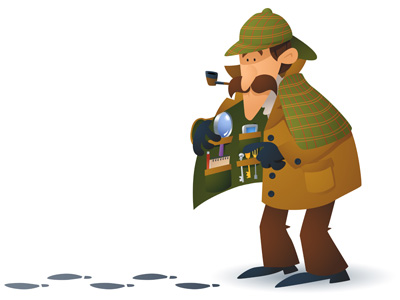Introduction

Source: Sherlock Holmes, istockphotos
Conducting research can be overwhelming sometimes. There are so many places to find information that it can be hard to know where to begin. Many students think that, in this age of the Internet, a research project can be completed with a couple of Google searches and online articles. However, this is simply not true. Completing a well-researched and well-written paper will at least require a few trips to the library in addition to your Internet research.
Search tips
Let’s discuss some tips for searching effectively.
Boolean search
A Boolean search is a basic search. In a Boolean search, you use the terms “AND,” “NOT,” and “OR” to refine your results. These words need to be typed in all capital letters. Often, the word “AND” is assumed if you use more than one term in your search string. You can use the word “NOT” to exclude certain terms from your search. For example, if you are searching about the programming language Java, you might also get results about coffee or the island of Java. By using the word “NOT” in your search, you can eliminate the results related to coffee and the island so that all your information is about programming.
Quotation marks
Whenever you want to search for a specific term that is more than one word, you should use quotation marks. For example, “death penalty” in quotations marks will retrieve pages that mention the entire phrase “death penalty” and not pages that have the words “death” and “penalty” separate from one another, even though they might be on the same page.
In this lesson, we will learn how to find and use information from online databases, the Web, and print sources such as books and articles.